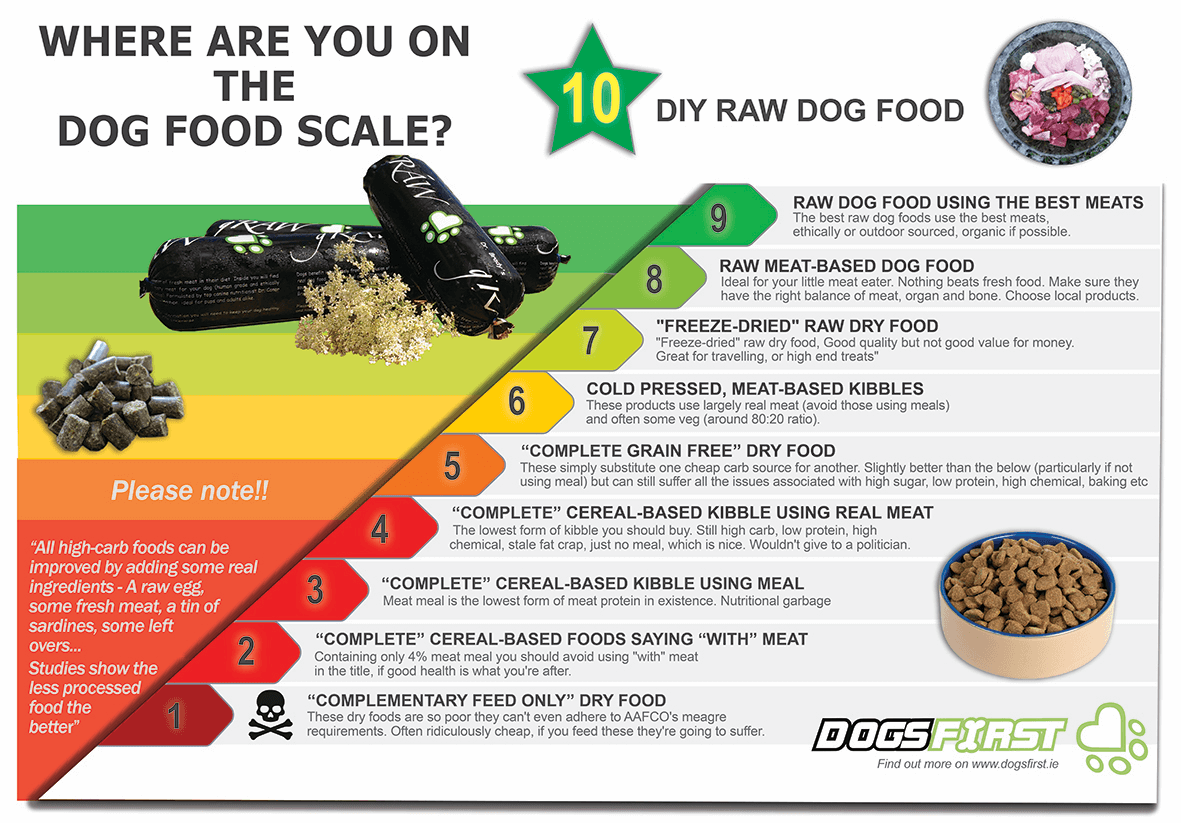
When it comes to ensuring your furry friend’s overall health and well-being, selecting the right food is absolutely crucial. In the article “What to Look for in High-Quality Dog Food for Overall Health,” you’ll find a comprehensive guide to navigating the myriad of choices available in the market. From understanding the importance of essential nutrients and fatty acids to recognizing the benefits of natural remedies and supplements, this article offers practical tips for dog owners. You’ll also learn why consulting your veterinarian and adhering to reputable quality standards is key to choosing the best diet for your canine companion, regardless of age, breed, or specific health needs. Let’s dive into the essentials that will help support a vibrant, healthy life for your beloved pet! Have you ever pondered, “What should I look for in a high-quality dog food?” As a responsible and loving dog owner, you naturally want to give your furry companion the best possible diet to ensure their overall health and well-being. High-quality dog food isn’t just about satisfying your dog’s hunger; it’s about providing them with essential nutrients that support their growth, development, and quality of life at every stage. Let’s delve into the core aspects to consider when choosing the right dog food for you and your dog.

Understanding Canine Dietary Needs
The Importance of a Balanced Diet
Dogs, much like humans, thrive on a balanced diet rich in essential nutrients. This includes a mix of proteins, fats, carbohydrates, vitamins, and minerals aimed at maintaining a healthy body and supporting normal bodily functions.
Essential Nutrients
The essential nutrients dog food must contain include:
- Proteins: Vital for muscle development and tissue repair.
- Fats: Provide energy and support skin and coat health.
- Carbohydrates: Offer an energy source to fuel daily activities.
- Vitamins and Minerals: Critical for various metabolic processes, bone health, and immune support.
What to Look For in High-Quality Dog Food Ingredients
High-Quality Proteins
Always prioritize dog foods that list specific types of meat, such as chicken, lamb, or beef, rather than vague terms like “meat by-products.” Proteins are crucial for your dog’s muscle development and overall health.
Animal vs. Plant Proteins
Animal proteins are generally more complete than plant proteins as they contain the full array of amino acids necessary for your dog’s health. Look for dog food with animal proteins as primary ingredients.
Healthy Fats
Healthy fats, particularly omega-3 and omega-6 fatty acids, support joint health, skin health, and a shiny coat. Sources of these fats include fish oil, flaxseed, and chicken fat.
Carbohydrates and Fiber
Carbohydrates from whole grains, vegetables, and fruits provide necessary fiber for digestion. Ingredients like brown rice, sweet potatoes, and barley are excellent sources of healthy carbs.
Necessary Vitamins and Minerals
A premium dog food should be fortified with vitamins and minerals to support your dog’s overall health and development. Key nutrients include Vitamin E, A, B-complex vitamins, and minerals like calcium, potassium, and magnesium.
Common Vitamins and Their Benefits:
| Vitamin | Benefit |
|---|---|
| Vitamin A | Vision, immune function, skin health |
| Vitamin D | Bone health, calcium absorption |
| Vitamin E | Antioxidant, skin health |
| B Vitamins | Metabolism, energy production |
Avoid Harmful Additives
High-quality dog food should be free from harmful preservatives, artificial colors, and flavors. Opt for natural preservatives like mixed tocopherols (Vitamin E) instead.

Specific Health Considerations
Joint Health
For active dogs or senior dogs, joint health is a significant concern. Ingredients like glucosamine and chondroitin can help maintain healthy joints and support a normal inflammatory response.
Skin and Coat Health
Ingredients rich in omega-3 and omega-6 fatty acids, like fish oil or flaxseed, help maintain a healthy skin and coat. Vitamin E also plays a vital role in skin health.
Digestive Health
Probiotics and fiber are essential for maintaining healthy bowel movements and a robust immune system. Ingredients like chicory root, beet pulp, and pumpkin are beneficial for digestive health.
Dental Health
While the food texture (dry or kibble) can aid in dental health by reducing plaque, some formulations include ingredients specifically designed to support oral health. Look for dog foods that contain enzymes or special fibers that help clean your dog’s teeth.
Senior Dogs
Senior dogs often require more specialized nutrition to address age-related issues. Look for dog foods formulated with decreased calories and increased fiber to manage weight, along with added supplements like glucosamine for joint health.
Understanding Labels and Certifications
AAFCO Guidelines
Ensure your chosen dog food meets the standards set out by the Association of American Feed Control Officials (AAFCO). Foods that have undergone AAFCO trials are more likely to provide a nutritionally balanced diet.
NASC Quality Seal
Products featuring the National Animal Supplement Council (NASC) quality seal indicate that they adhere to high standards of quality, purity, and safety in pet supplements.

Role of Supplements in Canine Diet
When to Use Supplements
Even the best diets sometimes require supplementation to address specific health concerns. Popular supplements include multivitamins, probiotics, joint supplements, and omega-3 fatty acids.
Types of Supplements
There are several types of canine supplements, each designed to address different health needs:
- Joint Supplements: Contain glucosamine and chondroitin to support joint health.
- Skin and Coat Supplements: Often rich in omega-3 fatty acids to maintain healthy skin and glossy coats.
- Probiotics: Help support digestive health and overall well-being.
Common Supplements:
| Supplement | Benefit |
|---|---|
| Glucosamine | Supports cartilage and joint health |
| Chondroitin | Supports a normal inflammatory response |
| Omega-3 fatty acids | Maintains healthy skin and coat |
| Probiotics | Enhances digestive health |
| Multivitamins | Ensure balanced intake of essential nutrients |
Tips for Choosing the Right Dog Food
Consult Your Veterinarian
Before making any changes to your dog’s diet or introducing new supplements, always consult your veterinarian. They can offer tailored advice based on your dog’s age, breed, and specific health condition.
Read Ingredient Lists Carefully
Always read the ingredient list on dog food packaging. The first few ingredients usually make up the majority of the product, and you’ll want to see high-quality sources of protein listed first.
Gradual Transition
When switching dog foods, transition gradually over 7-10 days to avoid upsetting your dog’s stomach. Mix a small amount of the new food with the current diet and gradually increase the new food’s proportion.
Monitor Your Dog’s Response
Pay close attention to how your dog responds to its new diet. Look for improvements in energy levels, coat shine, and overall health. Noticeable improvements suggest the chosen dog food is beneficial for them.

Food Quality and Safety Standards
Manufacturer’s Reputation
Choose dog food from reputable manufacturers that adhere to high safety and quality standards. Companies with transparent practices in sourcing and manufacturing their ingredients are more trustworthy.
Recall History
Check the recall history of dog food brands. Frequent recalls may indicate underlying issues in their manufacturing process, quality control, or ingredient sourcing.
Sourcing of Ingredients
Prefer dog foods made with locally sourced, ethically raised ingredients. This often ensures higher quality standards compared to mass-produced alternatives.
Trends in High-Quality Dog Food
Organic and Natural Ingredients
Organic dog foods avoid the use of pesticides, synthetic fertilizers, and genetically modified organisms (GMOs). Natural ingredients mean there are no synthetic additives, artificial preservatives, or colors.
Grain-Free Diets
Grain-free diets have gained popularity, especially for dogs with grain sensitivities. Instead of grains, these diets use alternative sources of carbohydrates like sweet potatoes and peas.
Raw and Freeze-Dried Foods
Some pet owners prefer raw or freeze-dried options to provide a more natural diet. These diets aim to mimic what dogs would eat in the wild, comprising raw meat, bones, and organs.
Limited Ingredient Diets (LID)
LID can be helpful for dogs with food sensitivities or allergies. These diets typically contain a single source of protein and a limited number of other ingredients to reduce the risk of allergic reactions.

Sustainability and Ethical Practices
Eco-friendly Packaging
Consider brands that use recyclable or biodegradable packaging to minimize the environmental footprint.
Ethical Animal Treatment
Look for brands that prioritize humane treatment of animals in their supply chain. Tags like “grass-fed” or “free-range” indicate better living conditions for livestock.
Corporate Responsibility
Support brands committed to corporate responsibility, including environmental sustainability, community engagement, and charitable activities related to animal welfare.
Conclusion
Choosing high-quality dog food is a pivotal decision that significantly impacts your dog’s health and overall well-being. By understanding the critical nutrients, recognizing quality ingredients, and considering any specific health needs, you can make informed choices that benefit your furry friend. Always remain attentive to their responses to new foods and consult with your veterinarian to tailor the ideal diet. A little effort in selecting the right dog food goes a long way in ensuring a happy, healthy, and long life for your canine companion.
Now, with all this knowledge at your fingertips, are you ready to make the best dietary choices for your dog? Your dog depends on you for their best health, so let’s make every meal count!







